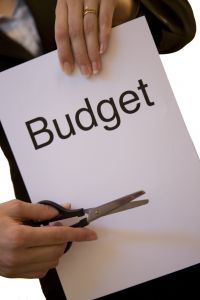|
Personal Budgeting, the Only Sure Approach to Find More Ways to Spend Less

Custom Search
Personal budgeting can be easy even if you have not done it before. It is just a matter of writing down the total amount of money coming in and the total amount of money going out. Once you know the difference between the two, you will be able to figure how much money you have for discretionary spending. The ATM machine to the left will teach the kids about money. So you see it can be made very simple. In doing so, no one will get intimidated. Personal budgeting is the cornerstone of any sound financial plan so no one can get away without it. The only thing is you will have to provide detailed information, but this is only at the start. It is vital that you do this because financial success will depend on this. The benefits are priceless for without it, you will be like a boat without an anchor and so you will just be rocking from sea to sea, not knowing where to go and how to get there. It is crucial to have this knowledge in order to succeed.
Step 1. List down your income. Here's how it is done. First, collect all the financial statements you have in one central location. Start going over them and writing down the monthly income you get from each category. This is not as easy as it may seem as some earnings are made weekly or bi-weekly, twice a month or once a month. Here's a Monthly Salary Calculation Chart to help you arrive at a monthly income regardless of payment intervals.
Following the chart, you will end up having the monthly income but make sure you list all the sources of income other than the paychecks you receive. Other sources of income include child support, alimony, interest income, investment income and others. Step 2: List down your expenses. This will not be as easy as listing the income for most people naturally have more expenses than income. There may also be expenses that are hidden and you may not be aware of. Try to bunch similar items together as one group. I will put down some samples for you. Don't be bogged down as to what category one item falls under because you can always make changes later. Here's a sample budget showing Step 1 which is a list of income and step 2 which is a list of expenses. If you like you can print it out or copy it writing down your own information for each category.
So you see it's quite simple to do personal budgeting. What will not be easy is keeping up a record of the actual expenditures. I put mine in a spreadsheet. I will show that to you later including how to earn extra cash and the other steps in personal budgeting. Personal Budgeting Guidelines Personal budgeting guidelines are used by the creditors when checking out your credit-worthiness. They will base the interest rate you have to pay whenever you apply for any kind of loan so it is best to keep within these guidelines. Don't worry if you are not there yet because knowing this will allow you to find out why they are out of line and track the expenses to work on getting within the guidelines. Review your budget now to see if you are within the following: Housing 35%, Transportation 20%, Other expenses 20%, Debt 15%, Savings and Investments 10%.
Here's something you can look at so you know it is possible to be careful with expenditures so you can live within your budget. You don't have to buy any of the stuff they're selling because I just bought it for you guys just to see what they have available. I just wanted to show you that it is possible to live well cheaply especially when you are just paying off your debt. Click Here!
You didn't find what you were looking for? Search for it at Google right here:

Custom Search
Return from Personal Budgeting to Debt Challenges Home Page for the Disclaimer.

Copyright © 2008-2009 http://www.debtchallenges.com/personalbudgeting.html All Rights Reserved
|






